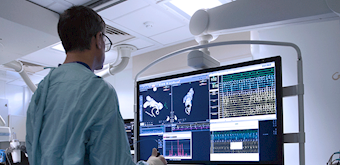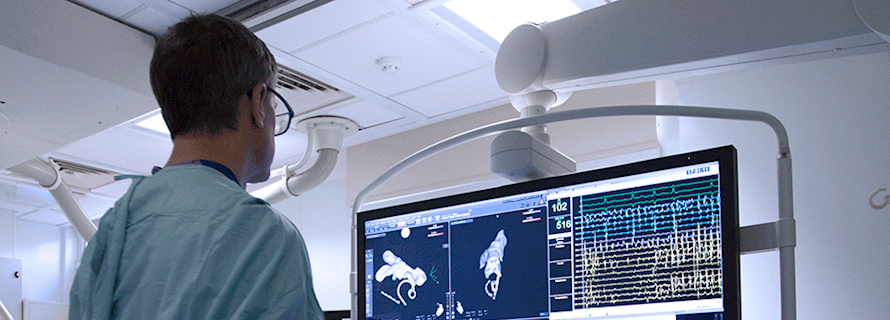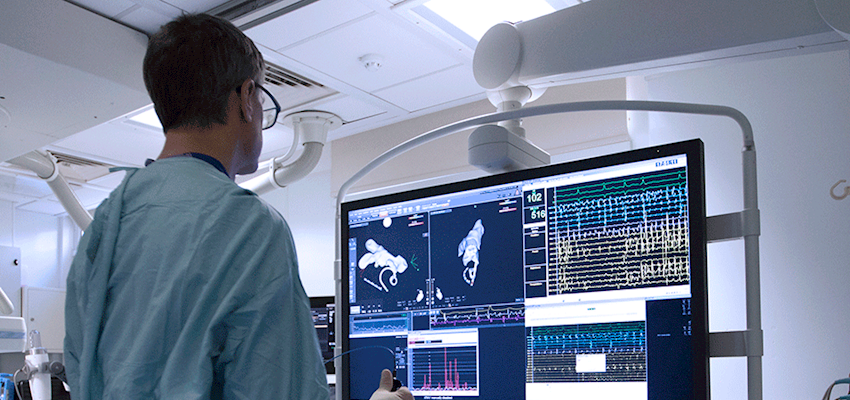Catheter ablation therapy for arrhythmia
Also referred to as a Cardiac or Heart Ablation, this minimally invasive treatment helps manage heart rhythm problems
Catheter ablation therapy is a specialised cardiac procedure to prevent areas of the heart from causing an abnormal beat
What is a catheter ablation?
Radiofrequency energy or freezing (cryoablation) is used to destroy the heart tissue that's causing the abnormal heart rhythm.
Need to know
-
What happens during catheter ablation therapy? icon plus
The procedure usually takes about an hour but may take longer if you’re having an ablation for atrial fibrillation. You’ll be given local anaesthetic to numb your groin area. You may also be given a light sedative or general anaesthetic. If you have general anaesthetic, you’ll be asleep throughout the procedure.
Your consultant will insert a small flexible tube into a vein (or veins) at the top of your leg and guide fine wires (catheters) through the tube and into your heart. Once they’ve identified the tissue in your heart that’s causing the arrhythmia they'll destroy it with a beam of radiofrequency energy or by freezing it. This corrects your heartbeat.
-
How to prepare for your ablation icon plus
Your consultant will tell you how to prepare. It’s important to let us know if you’re taking any medication as you may need to stop taking it before your procedure. You’ll be asked to stop eating and drinking a few hours beforehand. Like all procedures, there may be some risks and side effects involved. Your consultant will explain these to you and answer any questions you have. -
After your ablation icon plus
You may be able to go home on the day of your procedure and it is advised you should arrange for someone to travel home with you. However, if you had a long procedure or an ablation for atrial fibrillation, you may need to stay in hospital overnight.
You should rest for three to four days after the procedure to allow time for the top of your leg to heal. If you had your ablation for atrial fibrillation you may need to rest for up to two weeks. Your consultant will discuss the procedure with you and let you know when you can get back to your usual routine and activities. They’ll also give you advice on medication, exercise, travel, diet and alcohol.
Paying for medical treatment
Our cardiologists




Our locations
From complex cardiac surgery to straightforward diagnostic procedures, we provide exceptional care across our network of hospitals, outpatient centres and specialist clinics.
Request a cardiac appointment
We're happy to help you make an appointment with one of our experienced cardiologists. You can contact us by telephone or email.
Call
020 7079 4344